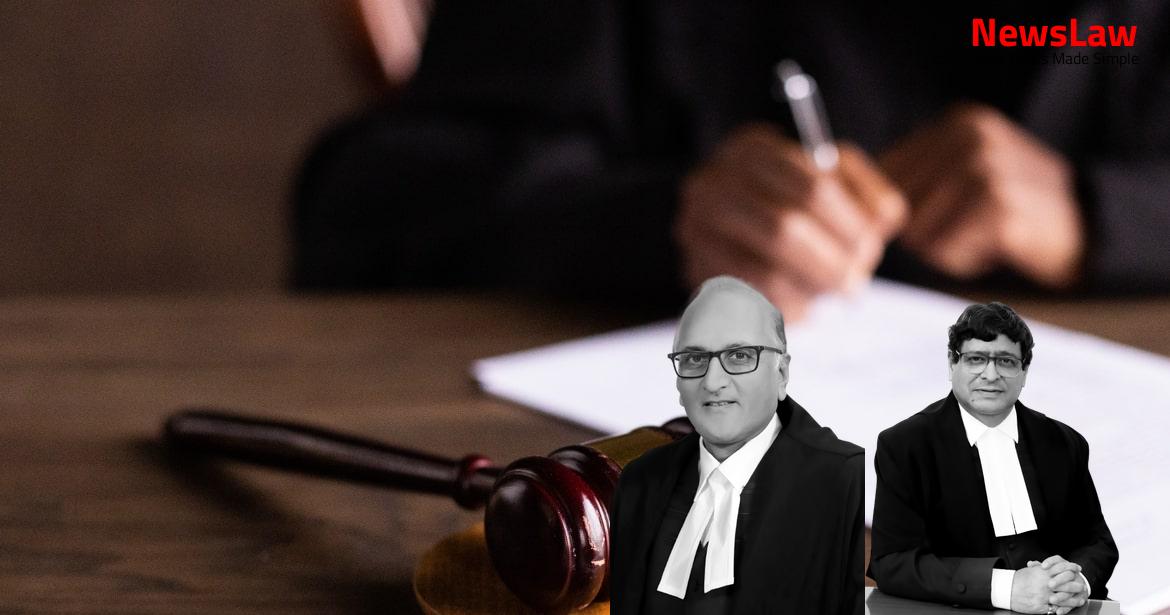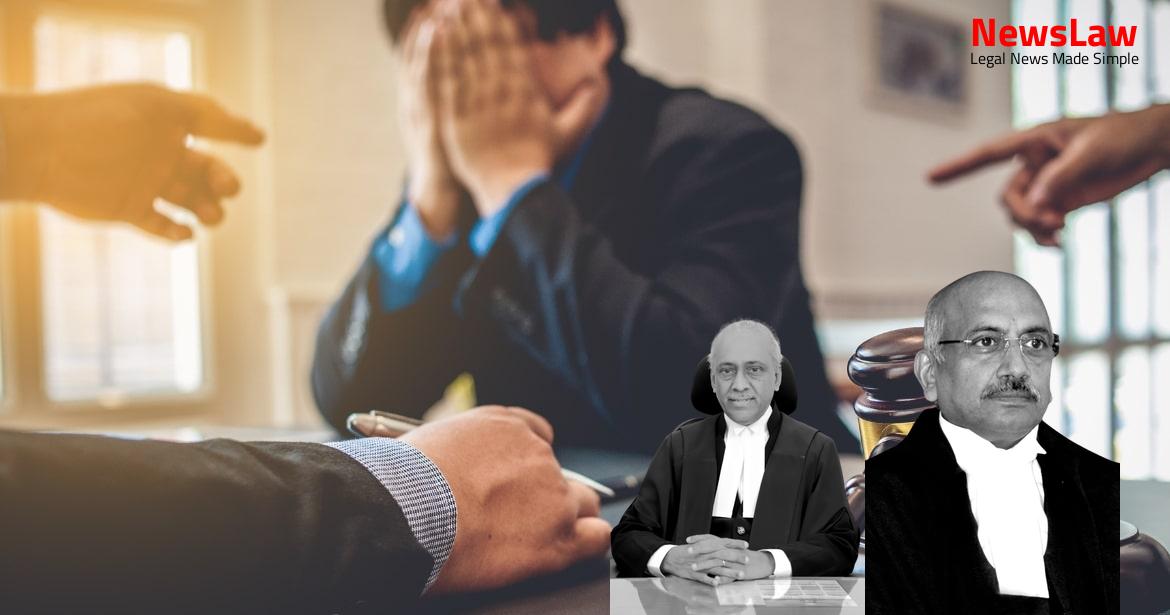In a significant legal battle, the Supreme Court of India delves into the intersection of promissory estoppel and public interest in the case involving the Union of India and M/s Dharampal Satyapal Ltd. The court’s judgment sheds light on the government’s authority to revoke exemptions for the betterment of society. Stay tuned to learn more about this landmark decision.
Facts
- The Union of India issued a notification withdrawing the exemption on pan masala with tobacco.
- The exemption was provided under certain conditions and procedures specified in the notification.
- Products like tobacco and tobacco products were not entitled to the exemption as per Annexure-I of the notification.
- Similar notifications were issued for the State of Assam.
- M/s Dharampal Satyapal Ltd., a manufacturer of pan masala with tobacco, challenged the amendment through a petition in the Gauhati High Court.
- The amendment included pan masala, tobacco products, and plastic carry bags of less than 20 microns in the negative list, making them ineligible for the exemption.
- Unicorn Industries also approached the High Court of Sikkim against the notification.
- The Investment Appraisal Committee was directed to give an opportunity of hearing to M/s Dharampal Satyapal Ltd. before deciding on the amount invested in specified items for availing benefits under earlier notifications.
- If M/s Dharampal Satyapal Ltd. proves its investment, the authorities were directed to refund the excise duty accordingly.
- A writ appeal regarding ‘pan masala containing tobacco’ was allowed by the Appellate Bench of the High Court, setting aside the Single Judge’s order and Notification.
- Union of India challenged the judgments passed by Sikkim and Gauhati High Courts.
- The High Courts erred in granting exemption from excise duty to M/s Dharampal Satyapal Ltd. for manufacturing pan masala from its Sikkim unit.
- Single Judge of Gauhati High Court found no substance in the petition and dismissed it, later overturned by the Appellate Bench.
- Appellate Bench allowed the appeal, overturned the Single Judge’s decision, and quashed the relevant Notification.
Also Read: Urs Family Property Dispute: Supreme Court Decree
Issue
- Issue: Whether the Union of India can be estopped from withdrawing the exemption from payment of Excise Duty through the doctrine of promissory estoppel, when such withdrawal is deemed necessary in the public interest.
- The appeals being considered collectively involve this common question of law and factual background.
Also Read: Jurisdictional Interpretation in Kamlesh Babu v. Lajpat Rai Sharma
Arguments
- The Union of India issued the 2007 Notifications to curb the consumption of pan masala, considering its hazardous nature to human health.
- The Sikkim High Court erred in interfering with the 2007 Notification by assuming a role beyond its jurisdiction and questioning the hazardous nature of pan masala.
- The Gauhati High Court’s Single Judge correctly dismissed the writ petitions by prioritizing public interest over individual interest.
- The Appellate Bench of the Gauhati High Court made a mistake by overturning the Single Judge’s decision and interfering with the 2007 Notification concerning hazardous tobacco products.
- Both High Courts and Appellate Benches relied on the doctrine of promissory estoppel, granting relief to writ petitioners due to assurances by the Union of India and State Governments that investments made would be exempted from central excise.
- The exemption notifications were issued to promote industrial development in economically backward areas, a fact overlooked in the appeals.
- The Union of India has the authority to modify and withdraw exemptions granted earlier, even though the 2007 Notifications were issued in the public interest.
- The Court has consistently held that a party cannot resile from a promise if the other party changes its position to its detriment based on that promise.
- The doctrine of promissory estoppel applies to the State and its functionaries as well.
Also Read: Land Acquisition Proceedings: Declaration of Lapse under Section 24(2) of the 2013 Act
Analysis
- The doctrine of promissory estoppel cannot be invoked in the abstract and courts are bound to assess all aspects including the objective to be achieved and the public good at large.
- Public interest must override any consideration of private loss or gain when it comes to policy decisions.
- Scientific studies have shown that pan masala with and without tobacco are hazardous to health and potent carcinogens that can cause oral cancer.
- Exemptions and their withdrawal are considered matters of policy in the domain of public decisions of the Government.
- It has been emphasized that the courts do not interfere with fiscal policy decisions aimed at the public interest unless fraud or lack of bona fides are alleged and established.
- When withdrawal of exemption in public interest, the doctrine of promissory estoppel does not apply if it can be shown that it would be inequitable to hold the Government to its promise.
- An exemption notification susceptible to revocation or modification in the public interest is an exercise of statutory power by the State.
- The withdrawal of exemption in public interest is not restrained by a specified period in the notification granting exemption.
- In instances where public interest warrants, the principle of promissory estoppel cannot be invoked, as reaffirmed by judicial opinions.
- Enforcing bans and strict regulations on harmful tobacco products like gutkha and pan masala is recommended to reduce cancer incidence rates and public health risks.
- The doctrine of promissory estoppel cannot be invoked for enforcement of a promise made contrary to law.
- Public interest can override an individual equity, particularly when the period is prescribed.
- Withdrawal of incentives or concessions by the Government can be upheld in public interest.
- The Government can change policies in public interest and can resile from promises if deemed inequitable.
- Courts must consider all aspects, including public good and equity, when applying the doctrine of promissory estoppel.
- The withdrawal of exemption for tobacco products was found to be in the larger public interest.
- The Appellate Bench of the High Court’s approach was deemed unsustainable.
- The doctrine of promissory estoppel could not be invoked in this case.
- The State had the discretion to withdraw the exemption if it deemed it not in the public interest.
Decision
- The judgment and order passed by the High Court of Sikkim dated 11.05.2012 is quashed and set aside.
- The appeal is allowed.
- The judgments and orders passed by the Appellate Bench of the Gauhati High Court dated 20.04.2016 and 25.05.2016 are quashed and set aside.
- The Order passed by the learned Single Judge dated 10.12.2010 dismissing the writ petitions is upheld.
- The appeals in Civil Appeal Nos. 2345 of 2017 and 2346 of 2017 are allowed.
Case Title: UNION OF INDIA Vs. M/S UNICORN INDUSTRIES
Case Number: C.A. No.-007432-007432 / 2019



